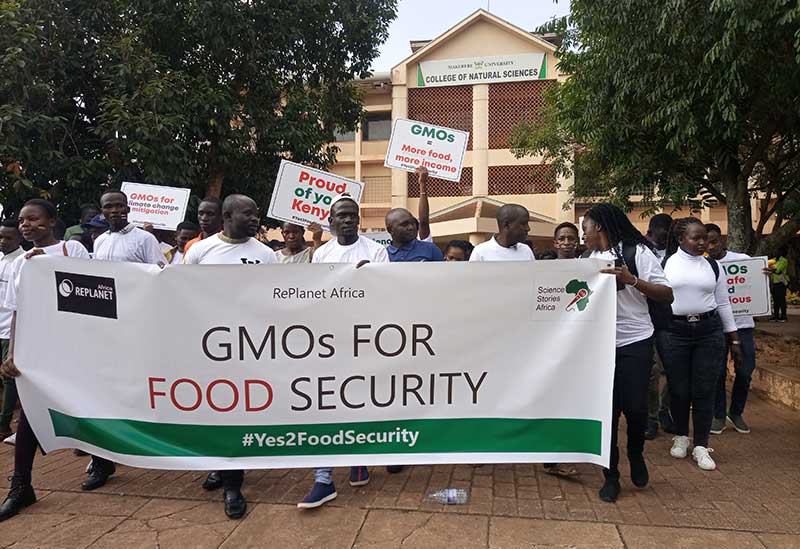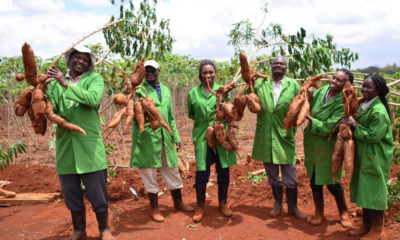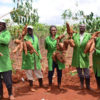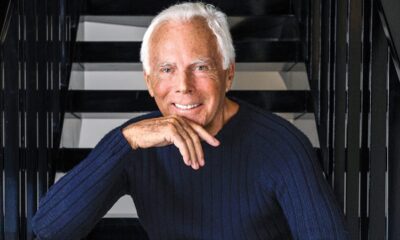News
Ugandans march in support of GMOs, laud Kenya’s President for embracing technology
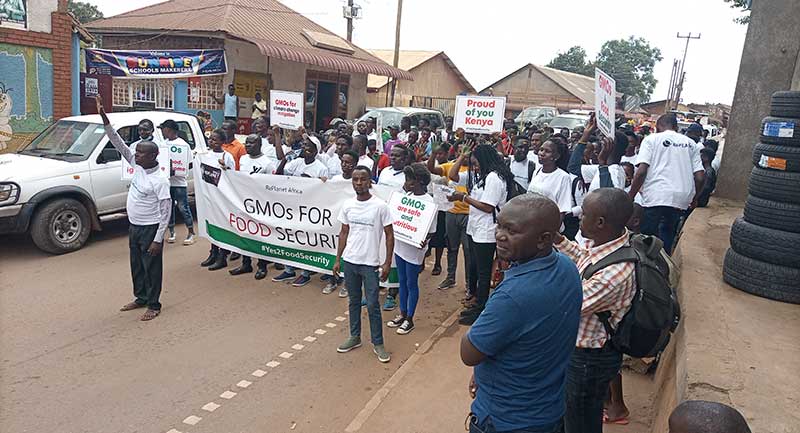
The march for GMOs was meant to send a message of support to Kenya and to urge Ugandan authorities to take similar steps
Students mostly from Makerere University joined scientists and farmers on Friday for a march in support of the science of genetic modification (GMOs) and to praise the bold decision taken by Kenya’s President William Ruto to lift the ban on the growing of genetically modified maize as one of the steps to address the country’s chronic maize shortages.
The march for GMOs was organized by RePlanet Africa, a civil society organization dedicated to promoting appreciation of the role of evidence-based science for social economic transformation.
Preceded by a band and the police, the march started from the College of Natural Sciences at Makerere University main campus, went around the campus towards Makerere ‘kubbiri’, through Sir Apolo Kaggwa road and back to the college.
Patricia Nanteza, a fierce advocate of GMO technology said that besides voicing support for Kenya, the decision to stage a march was meant to raise awareness about the benefits of modern biotechnology, including increasing food security, reducing the impact of droughts and reducing the use of pesticides through adoption of pest-resistance varieties.
“Today was an opportunity for us to show up and tell the world that we support science. We support science because it makes our lives better, because it proves food for us, and as mothers, it helps us take care of our children. The vaccines we give our children are products of science,” Nanteza added.
“We are also here to tell the government of Dr. Ruto that we are proud of you for lifting the ban on GMOs in Kenya. You’ve done the right thing, it is the compassionate thing. It is not right that people should go hungry yet we have tools that can help us fight hunger.”
Nanteza and her team used the march to urge Uganda’s President Yoweri Museveni to assent to the Genetic Engineering and Regulatory Authority (GERA) act which he rejected twice after being passed by Parliament of Uganda.
Dr. Andrew Kiggundu, a biotechnologist and principal researcher with NARO, lauded Kenyans for the deliberate effort to use GMOs to save themselves from hunger.
“We are very glad that some of the crops they will be growing, we have researched them together. Some of the crops we’ve co-developed here in Uganda. The parts of those crops that were meant for Uganda, we kept them away, until our government makes similar progress towards adopting GMO technology.
“This collaboration tells us that science and innovations have no borders. When we’re researching, we don’t work alone. We work with everybody who is interested in addressing our challenges from around the world. That means that our science we have developed here, can be used by people from other parts of the world.
“The government should realize that if we don’t adopt the technology, some of which has been developed by our own scientists, we will be isolated internationally, yet what other people are using and adopting, were developed by us or in collaboration. The march today should help us appreciate that science and innovation is global. The values of innovation and science will be of use by our brothers in Kenya,”
Kiggundu expressed concern that when Kenyans adopt GMO technologies they will acquire the power to produce much more and at much lower costs than they are doing currently. This, he argued, might cost Uganda her lucrative market for maize in the East African country.
“If Kenyans adopt a more efficient technology for maize production, not only will they be able to meet their grain needs, they will be able to produce enough of their eggs and chicken. This will create an unfavorable trade imbalance for Uganda because Uganda’s maize, eggs and chickens had got a market there.”
Alfred Nabaasa, a farmer and former LC 5 councilor in Mbale district.
“As someone who stays at the border, I know what happens with farmers on either side of the border. There was a time when Kenyan hybrids were popular. Ugandan farmers would crossover to Kenya and import them. That importation was informal. I am foreseeing a situation where our farmers are going to cross to Kenya and bring GMO maize seed, plant it in their gardens without any regulations,”
“What we are saying is that the GMOs will be brought to Uganda, whether we like it or not. So the earlier we put in place a regulatory framework, the better. Besides the risks of unregulated introduction of GMOs, we are not helping our farmers to face up to the challenges of climate change,” said Nabaasa.
Retired chemist turned entrepreneur Dr. Deborah Wendiro, who is the founder of Wena Biosciences said that suffocating the science of GMOs will deny Ugandans the many benefits that are associated with beyond just improving food security.
“Wendiro said that GMOs are critical in industrial processes such as producing lactic acid and other enzymes, which if adopted would save the country’s loss of foreign exchange.
Comments



